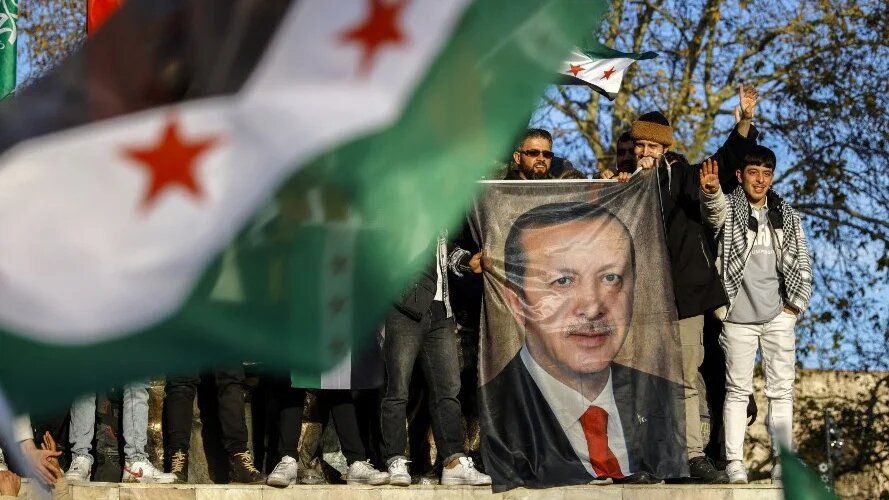
A recent Israeli airstrike near the Syrian presidential palace marked a turning point in the long-running conflict over influence in Syria, exposing the growing complexity of the Turkish-Israeli dynamic. Unlike past incidents, Ankara offered no immediate response—an unusual silence from one of Damascus’ closest new allies. This absence of condemnation has stirred debate among analysts about a possible shift in Turkish priorities and its approach to the region.
Since the fall of the Assad regime, Syria has become a battleground for competing Israeli and Turkish interests. Tel Aviv has accused Ankara of trying to expand its military footprint, a claim Turkish officials have denied. The friction escalated after Israeli forces targeted central Syrian sites allegedly surveyed by Turkish reconnaissance for a prospective base. In response, Turkish and Israeli officials reportedly met in Azerbaijan to discuss mechanisms for deconfliction. However, observers point to deeper strategic shifts behind Israel’s aggressive posture.
Strategic Maneuvering in a New Order
Turkish President Recep Erdogan recently criticized Israeli operations as threats to regional stability. “Israel is disturbed by Turkey’s power in the region,” Erdogan told reporters, according to Anadolu Agency. Simultaneously, Turkish jets reportedly flew over the area during the Damascus raid, sending a calculated signal without direct confrontation, The Jerusalem Post reported.
Researcher Ali Asmar characterized the Israeli actions as “strategic noise” aimed at disrupting Ankara’s growing ties with Syria’s new leadership. Asmar noted that Israel is trying to reassert itself in a changing landscape, especially as the US military presence in Syria winds down. Pentagon spokesman Sean Parnell confirmed plans to reduce troops to below 1,000 in the coming months.
Mutual Wariness and Diplomatic Threads
Despite rising tensions, both Turkey and Israel appear cautious about triggering open conflict. Firas Faham of the Abaad Center told Arabi21 Ankara is wary of providing Israel with a pretext to escalate, opting instead to coordinate with Washington. “Any response on the ground could be used by Israel to justify broader attacks,” he said.
This restraint aligns with broader geopolitical calculations. President Donald Trump has played a behind-the-scenes role in trying to ease tensions, calling Israeli Prime Minister Benjamin Netanyahu “to be reasonable” in dealings with Erdogan. Trump’s rapport with the Turkish leader has helped maintain a fragile balance, despite frustration from Israeli officials wary of US support for Turkish influence in Syria.
The Vacuum and the Vortex
As American forces draw down, both Turkey and Israel are vying to fill the resulting vacuum. An article in Foreign Affairs, citing Washington Institute researchers, warned that without coordination, both powers risk deepening hostilities. The authors urged restraint, suggesting that “Israel should avoid turning Turkey into an enemy” and instead establish red lines to avoid miscalculation.
With Syria’s political future uncertain, the risk of strategic missteps remains high. Yet recent backchannel talks and measured moves hint that both Ankara and Tel Aviv prefer competition to confrontation—for now.








